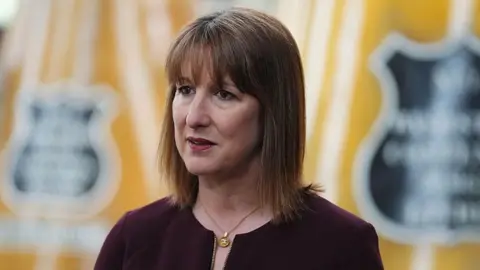### Tough Choices on Public Spending Unavoidable, Says IFS
In a recent report published by the Institute for Fiscal Studies (IFS), the think tank highlighted the daunting reality that difficult decisions regarding public spending are “unavoidable” as the government prepares its budget allocations. The report addresses critical areas that include the National Health Service (NHS), defense, education systems, and the criminal justice framework. The IFS’s analysis indicates that the allocation of funds within these sectors is making the upcoming Spending Review a pivotal event for the government and its future spending policies.
The IFS pointed out that the spending levels allocated for health care will significantly influence financial decisions regarding “unprotected” areas outside the NHS, education, and defense. In light of recent funding increases, the report warns that although investments in sectors like transport and public safety surged in 2024, future budgets may face stagnation due to the government’s financial commitments.
The Spending Review scheduled for 11 June aims to scrutinize every pound allocated by the government, focusing on departmental budgets for the next three years and investment budgets spanning four years. Recent insights from Whitehall sources indicate that this review could lead to contentious debates among ministers, all vying for limited resources available for their respective departments. This environment of austerity raises concerns over various plans, including initiatives aimed at bolstering police numbers to combat violence against women, which may not secure the requisite funding. Furthermore, discussions surrounding the extension of capped bus fare funding are also in jeopardy.
Chancellor Rachel Reeves’ firm position against borrowing and tax increases suggests a path toward inevitable spending cuts. The IFS has described recent government spending strategies as “front-loaded,” meaning there has been a surge in spending at the beginning of the parliamentary term, which will taper off in ensuing years. The institute states, “The consequences of this decision must be confronted,” hinting at impending challenges that need to be addressed.
Daily spending on public services is heavily dependent on the funding allocated to the NHS, which constitutes a substantial 39% of day-to-day departmental budgets. Planned NHS spending is estimated at £202 billion for the fiscal year 2025-2026. However, the IFS cautions that if health funding continues at historical average rates, other unprotected departments will suffer real-term budget cuts. As a result, this fiscal environment poses difficulties for government ambitions to enhance the criminal justice system, particularly in tackling issues like prison overcrowding.
A focal point of the IFS report is the potential trade-offs involved in healthcare spending. The report outlines that if healthcare expenditures rise significantly, particularly in the midst of rising demand for services such as urgent care and dental aid, there will be increased pressure on budgets for other critical services. According to Bee Boileau, a research economist at the IFS, the Treasury is faced with “some unavoidably tough choices.” After a period of increased funding availability, the flow of additional resources is expected to dwindle, forcing lawmakers to prioritize expenditure critically.
The ongoing commitment to enhancing military capacity has led to a proposal to increase defense spending to 2.5% of national income by 2027, resulting in ramifications for other sectors, including potential cuts to foreign aid. The IFS warns, “Giving more to defense means, all else equal, bigger cuts to something else,” illustrating the trade-offs inherent in budgeting decisions.
Chancellor Reeves’ recent adjustments to debt regulations have opened the door for more spending on long-term infrastructural projects. However, the IFS cautions that not every program can be prioritized for funding increases. The report challenges government officials to consider the ramifications of their choices, moving away from simply avoiding difficult discussions regarding funding shortages.
Given the backdrop of fiscal restraint, the IFS suggests that improving productivity within public services may enable the government to achieve the same level of service provision regardless of budget constraints. However, addressing lower productivity—reported to be lagging behind pre-pandemic levels—presents a formidable challenge.
As the government continues to implement various strategies aimed at reducing hospital waiting lists and controlling inflation, the IFS warns that neglecting public sector pay could trigger unrest. The think tank concludes that while cuts are feasible, they necessitate rigorous prioritization within governmental frameworks to avoid undermining public services.



